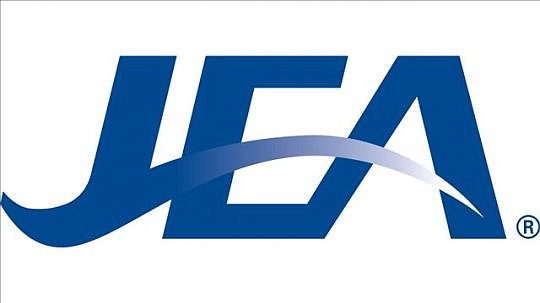
Sometimes, the best course of action is to take no action.
That’s what JEA’s board of directors decided Tuesday when it deferred a vote on the utility’s proposed net metering policy for customers who have rooftop residential solar power generating systems.
Paul McElroy, JEA CEO, recommended delaying action until voters decide in November whether to adopt the “Solar Devices or Renewable Energy Source Devices Exemption from Certain Taxation and Assessment” amendment to the state constitution.
If enacted, the amendment would authorize the Legislature to exempt from ad valorem taxation the assessed value of solar or renewable energy source devices and prohibit consideration of residential solar panels when assessing the value of real property for tax purposes.
The amendment also would protect a utility’s customers from having to subsidize those who install residential solar systems, said JEA Chief Financial Officer Melissa Dykes.
The utility’s existing solar policy allows customers with rooftop solar systems to sell electricity they generate but do not need for their homes to JEA.
The utility pays more per kilowatt-hour for the solar power placed into the grid than it costs the utility to generate the same amount of electricity with fossil fuels.
The proposed change in solar policy would reduce the amount paid by JEA to solar system owners — about 11 cents per kilowatt-hour — to what JEA charges to deliver electricity to their homes, about 7 cents per kilowatt-hour.
The board heard nearly two hours of public comment on the issue from representatives of the residential solar industry, homeowners who installed rooftop solar systems and advocates for the energy industry, environment and Jacksonville’s low-income community.
Local residential solar suppliers and sales representatives said reducing the credit to solar system owners who send excess electricity to the utility would harm their livelihoods by making the product more difficult to sell.
Jeff Winkler, head of administration and strategy for United Way of Northeast Florida, supported the position that if JEA pays solar owners more for electricity than it costs the utility to deliver it, other customers are in effect subsidizing solar owners.
He said 50 percent of Jacksonville’s population either lives below the federal poverty standard or even if their income is above the poverty line, they struggle each month to pay basic living expenses.
“Low-income families are not installing solar systems,” said Winkler.
“I don’t want to see any industry adversely affected, but at the same time, I don’t want low-income ratepayers to subsidize any industry,” said board member Warren Jones, who suggested deferring action on the proposal even before the public comment period began.
Board member Ed Burr pointed out that of the 24 speakers, eight said more discussion is needed before a new policy is adopted and suggested a deferral.
The board approved implementation of the “SolarSmart” program, which will allow customers who cannot install a solar-based generating system to pay the 11-cent-per-kilowatt-hour rate for electricity.
Dykes said customers, at their option, may support JEA’s use of solar energy as an alternative to fossil fuels by paying the higher rate for any percentage up to 100 percent of their monthly electric bill.
Enrollment will begin before the program goes into effect Oct. 1.
@DRMaxDowntown
(904) 356-2466